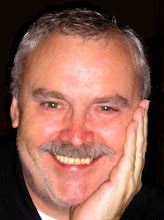As a Sales Consultant I get to work with Salespeople of all ages.
And, I love the diversity.
| Gen Y | Gen X | Baby Boomer |
| Diversity | Self-centred | Optimism |
| Social | Disloyal | Involved |
| Now! | Impatient | Go the extra Mile |
| Anti-Authority | Distrustful | Achieve |
| Community | Independent | Family |
|
|
Influencing Factors |
|
| I-Phones | MTV | KFC |
| Ninja Turtles | AIDS | Woodstock |
| ‘Indignados’ | NIKE | Equality |
| NYC twin towers | Kuwait/Falklands | Vietnam |
This is my list, how I see ‘difference’.
Personally I love them all, but that’s because I’m a Baby Boomer. Two parents, male and female, two brothers and loads of girl cousins, stay at home Mom and working Dad. Encouraged, but not forced, to study. Stand for the national anthem and honour the flag. I have 5 kids from 42 thru 26, and an 18 year old grand-daughter so I have some insights.
The thing is; there is a clear difference between GenX and GenY which is causing them problems in Selling together. In fact, in my experience, it’s easier for GenY to sell WITH (not always to) a Baby-boomer. It’s got to do with their views about (or their attitude to) Independence-Interdependence.
Baby -Boomers and GenY are comfortable with ‘inter-dependence’ in one case its small community ‘Family’ in the other its bigger community ‘Friends’. And in both cases it extends to both Friends and Family.
If you don’t believe me compare 20 of each BB, GenY, GenX on Facebook for both ‘community’ type, size and activity. However, GenX limits themselves to close friends, few family and the acquaintances who may be ‘useful’ to them.
How does this effect Sales? Quite a lot!
As the Baby-boomers
are leaving Sales, GenX isn’t too happy with their new GenY colleagues and subordinates.
GenX find GenY “NEEDY!”
The GenY Subordinates and Colleagues find their GenX Bosses and Colleagues Distant and Cold.
GenY preferred the warmer and more involved Baby Boomers!
I am seeing ‘step-overs’ happening more and more. GenY’s are going directly to their Baby Boomer CEO or other ‘B-B’ C suite contact for support. ‘B-B’ CEO’s are more comfortable in the community of GenY Sales people than the individualist GenX Sales Manager!
How are we going to cope?
-
VALUE Diversity! Strive for an inclusive mixture,
be part of a broad Community -
DON’T rush the Baby-boomers out the door.
-
STOP trying to make the GenY’s in your image.
Have a look in the mirror, YOU are not as young as you were,
and you will be the previous generation soon enough.
GenY isn’t going to put up with your demands,
they have their own way of doing things.
Looking at some Sales Centres of Excellence in Big IT,
I couldn’t help but notice how well GenY and the Baby Boomers ‘got on’,
and that the GenX’s were sometimes a resentful minority!
“Coaching and Counselling” is easier between Grandchildren and Grandparents than it ever was between Parents and Children.
Perhaps its natural, when you ‘rebel’ against a Parent, you become more like your Grandparent!


![clip_image002[4] clip_image002[4]](https://blogger.googleusercontent.com/img/b/R29vZ2xl/AVvXsEgJR4hfMfQQ1D0zhLZmJtPUjPagMJVuHg-U8E0eawZXr4BXX3eLi1Ifs9H4_VIsoWn9PoEzsSFRBRKJstvvKbmDErPCujNRzTltRiemQCuebPMiSeOCI5QM_Dsy3LV8NH5whDnUgFswZqye/?imgmax=800)









